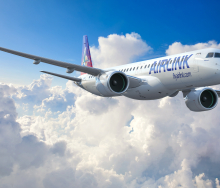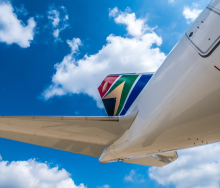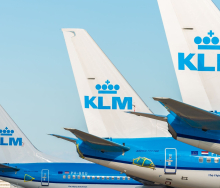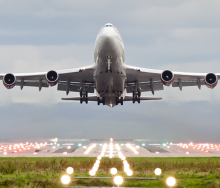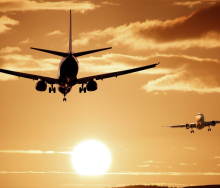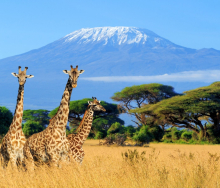MEDIA coverage on the increased malaria risk, following the floods in Southern Africa, has been slammed by the tourism industry for causing unnecessary widespread concern.
While it is commonly known that the rains increase the breeding ground of the Anopheles mosquito and that there will be no "low risk" period during the upcoming winter months because of this, most of the increased statistics quoted in the local and international media are relevant only to the rural areas where people do not have access to, or cannot afford, to take all the necessary precautions, such as prophylactics.
This however, does not mean that people should have their heads buried in the sand and "hide" the increased risk from travellers, says Dr Andrew Jamieson from British Airways Travel Clinics.
He believes the tourism industry should take the responsibility of correctly informing their clients about the increased risk and caution them about taking all the necessary precautions to "significantly decrease the risk".
"It is not necessary for people to cancel their holidays. Travellers are not in any more danger than normal during a high season, provided they take the prescribed prophylactics, wear long-sleeved shirts, use insect repellents and mosquito nets and all the other precautions."
BA Travel Clinics is working closely with the lodges in the Mpumalanga area, providing assistance to them with regard to educating guests on the dangers and reducing the mosquito population by treating walls with insecticides, checking screens and mosquito nets, installing fans and air-conditioners - mosquitoes can't fly in moving air.
Safe larvaecides are also being dropped into water pools to kill the mosquito at its larval stage.
The Kruger National Park has taken additional precautions against the increase of the malaria carrying mosquito, reports public relations manager William Mabasa.
The park has also issued additional alerts containing detailed information on the risks and the preventative measures which can be taken.
Dr Seymour Waner, medical director for South African Airways (SAA) Netcare Travel Clinics agrees with the statement that high risk regions in South Africa do not pose too much of a threat to tourists, if they take proper precautions.
"The tourist destinations realise what a valuable commodity they have in their visitors and take extra special care to eliminate the threat, by ensuring their mosquito netting has no holes, regularly treating the walls and providing updated advice and assistance," he says.
(Southern African Tourism Update - April 2000)


